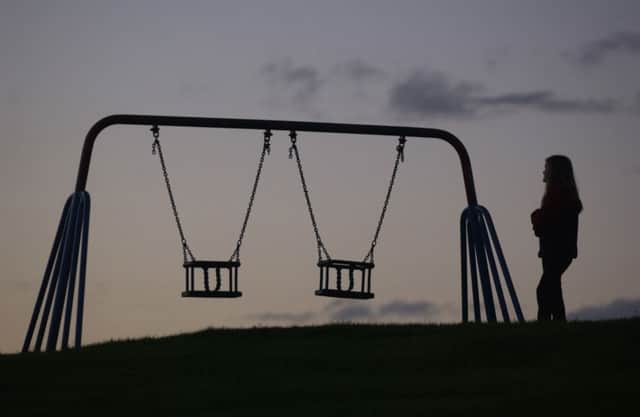Spare a thought for the parent of an adopted child


Unlike before when it was a matter for dissuasion, nowadays most adopted people will become interested enough in their biological roots to search out details of the people who make up their DNA. Invariably, birth mothers are identified first, not least because of the details on the adopted person’s full birth certificate.
And usually it follows that if there is any contact to happen it will be the mother that is first approached. Whilst we know a lot about the early days of these meetings, we know relatively little about how and whether things settle down so that both mother, and the child that she had adopted out, can comfortably be in the lives of each other and each other’s families.
Advertisement
Hide AdAdvertisement
Hide AdWhen it comes to finding details and contact with a birth father, things become much more complex. A first source of alarm and distress can be reading on the birth certificate the words ‘father unknown’. But this needs to be understood in the context of times in which there was a legal requirement for a mother’s name and that of the father was optional, and may have been withheld for all sorts of reasons such as relationship breakdown, avoiding maintenance payments or the doubling of societal opprobrium.
The practice of allowing ‘father unknown’ on birth certificates, adopted or not, remains to this day and could do with revision because it is very rarely the case that he was literally ‘unknown’. If names must be withheld there ought to be a demonstrably good reason and perhaps ‘unregistered’ would be better.
To return to adopted people in particular, after a period of contact with their birth mother, thoughts often turn to the father. In the minds of most adopted people there is an empty chair at the table marked ‘father’ and sooner or later curiosity about him, what he looks like, whether he knew about the adoption and was involved, will grow into action. If there was no name on their birth certificate, the birth mother can be the source of his name. This often requires great sensitivity. But if this proves difficult then court process papers and adoption agency records might render up a name.
As for whether their fathers are any more or less responsive than the mothers, research tells us that for both birth mothers and birth fathers, it all depends on whether the adoption of their child has been kept secret, the age and health of the mother or father, how feelings have been managed over the years and so on.
This is where our Adoption Contact Register can work best as it allows for registration of mutual wish for contact. Then, a one-off contact that could be an exchange of letters or a meeting might happen, or the relationship grow into the presence in their lives of both sets of parents. For the adopted people with whom we work, having a knowledge of both their birth mother and birth father means that questions have been answered, possible demons laid to rest and the jigsaw complete.
But to return to the subject of Father’s Day, for the fathers of children that have been adopted, the celebrations, the T-shirts, the cards can be unsettling. If he was aware of his child’s adoption, and research tells us that unlike the stereotype of older man that gets a girl in trouble, birth fathers were often young men going steady with their girlfriends and very much aware of the pregnancy, birth and adoption, then Father’s Day can be a source of regret, or at very least, remembrance.
Whether open or more closed about having had a child adopted, because of complex memories and feelings of loss, birth fathers, whether or not they have met their adult son or daughter, can find Father’s Day a challenge.
• Gary Clapton is a post-adoption counsellor with Birthlink in Edinburgh and training officer with City of Edinburgh Council Social Work Department.
SEE ALSO